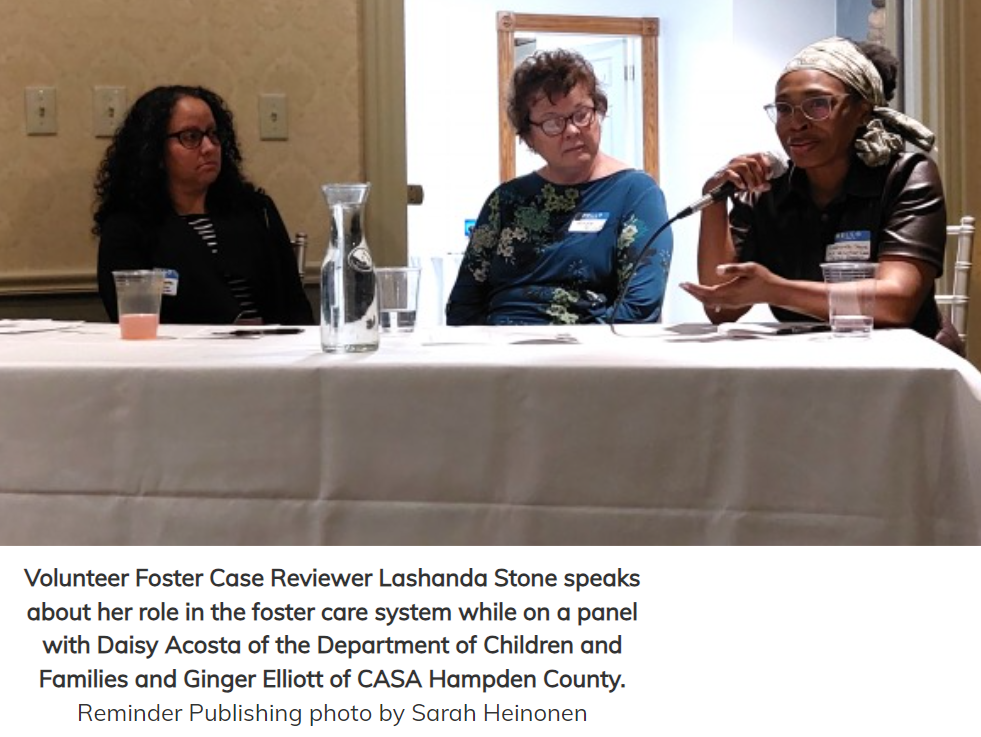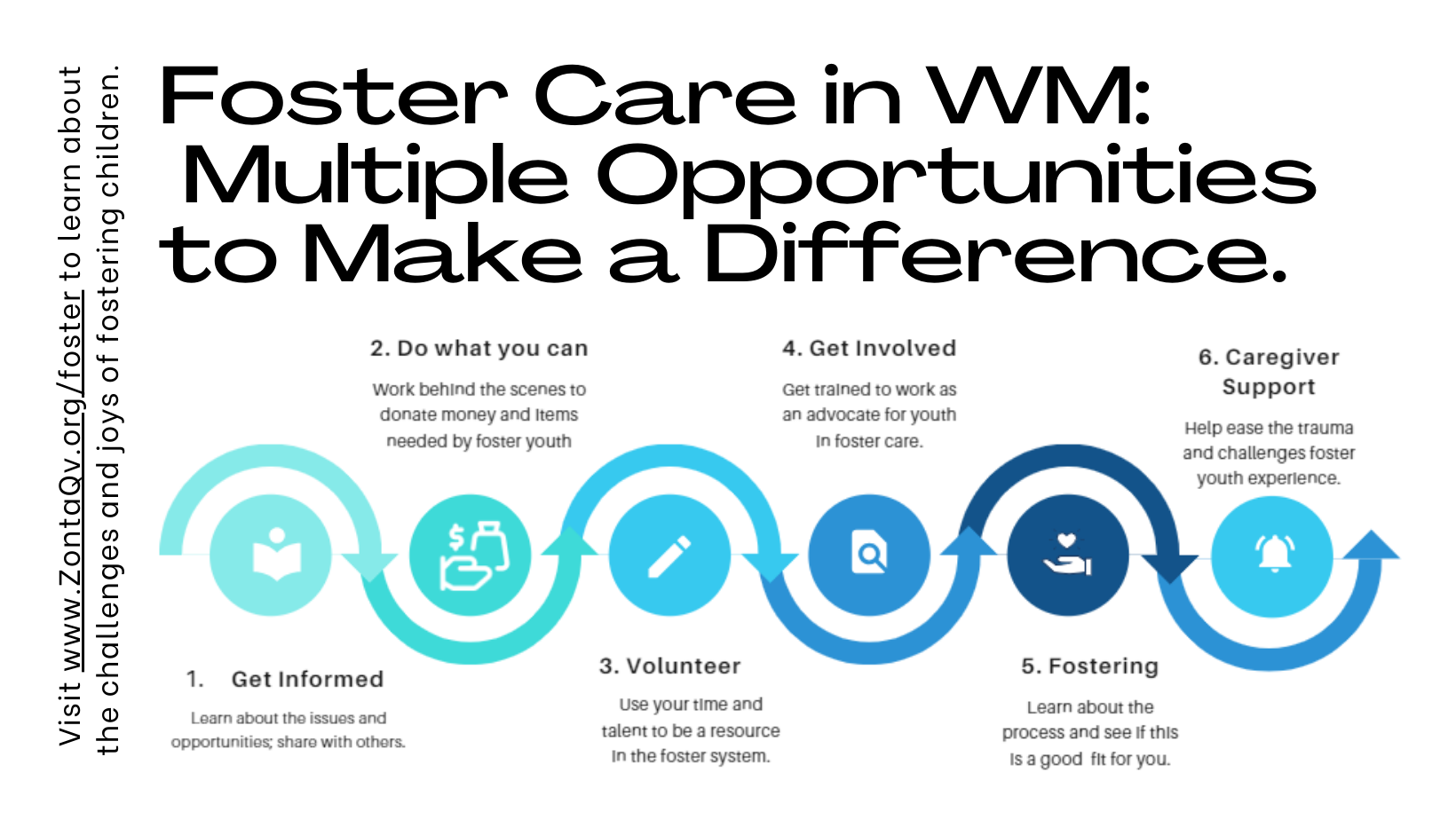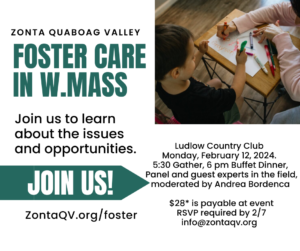Reminder Publication article on this program
When a child is being neglected or abused, the Massachusetts Department of Children and Families (DCF) has the authority to remove that child from their home and temporarily place them in a safe home with a foster family – ideally with a relative or other known person (kinship placement). In too many instances, however, children are placed in any home with the space, whether or not it is the best match, because of the shortage of foster families. In addition, as children can be in a foster situation for a long time before being reunited with their family of origin or adopted by another family, they will likely be moved to multiple foster locations. The experiences of foster children vary widely depending on their circumstances and the specific foster families they are placed with. Still, some common themes emerge during this critical, formative stage of their lives: trauma, instability and uncertainty, emotional and psychological challenges, and educational disruptions.
neglected or abused, the Massachusetts Department of Children and Families (DCF) has the authority to remove that child from their home and temporarily place them in a safe home with a foster family – ideally with a relative or other known person (kinship placement). In too many instances, however, children are placed in any home with the space, whether or not it is the best match, because of the shortage of foster families. In addition, as children can be in a foster situation for a long time before being reunited with their family of origin or adopted by another family, they will likely be moved to multiple foster locations. The experiences of foster children vary widely depending on their circumstances and the specific foster families they are placed with. Still, some common themes emerge during this critical, formative stage of their lives: trauma, instability and uncertainty, emotional and psychological challenges, and educational disruptions.
We can’t protect foster children, or any child, from challenges in life, but we can equip them with resilience and prepare them for those hardships. Children need structure, responsibility, and opportunities to see that they can do and learn new things. There is something every one of us can do to help. (See visual below.)
The Zonta Club of Quaboag Valley held a panel discussion and dinner on Monday, February 12th at the Ludlow Country Club for anyone interested in learning more about the realities and opportunities in the Foster Care system in Western MA. The program was facilitated by Andrea Bordenca, founder of Lead Yourself Youth, and included representatives from Family Justice Advocates, Department of Children and Family (DCF) Volunteer Case Review Program and Family Resources, Court Appointed Special Advocates (CASA) and other organizations that provide services to foster children and families.


- Department of Childen and Families – 2022 Report on Foster Care. Comprehensive view of children and families involved with child protective services
- Overview of Foster Care and Adoption in MA – Fostering All Our Kids Community
- Care and Protection proceedings for children. General overview of the legal process.
- Family Resource Centers – Centers that support families when they have a crisis or need help.
- Court Appointed Special Advocates – Trained volunteers give youth a voice in the courtroom
- Family Justice Advocates – Attorneys represent children and indigent parents in state intervention/ family regulation cases
- Gándara Center – Bilingual advocate services including behavioral health, foster care, and youth and young adult residential homes.
Donate money and/or items needed by foster youth.
- One Can Help – Fulfill a specific need requested by a child.
- Help Our Kids – Fulfill the needs of children in foster care.
- Wonderfund – Allow kids and teens to enjoy childhood’s magical moments.
- Community Closet /Fostering All 0ur Kids (Agawam) – Donate gently used clothing, toys and gear
- Backpacks for Kids Foundation – Donate backpacks to be distributed state-wide through local agencies
- Schools on Wheels – Donate backpacks and tools for school
- Wings of Love (Greater Springfield) – Collecting new backpacks and school supplies
- Stuff the Bus – United Way of Pioneer Valley collects backpacks and school supplies for homeless and foster kids
Whether you have an hour or two a month or a few hours a week, you can make a significant difference in the life of a child or teen in foster care. Find suggestions at these sites:
- DCF Kin Staff– There are unlimited ways you can impact a child you know who is in DCF care.
- Friends of Children – From shorter-term opportunities that support basic needs to longer-term involvement in advocacy and mentoring
- All Our Kids, Inc. – Lots of ideas to get involved in support foster and adoptive families and children
- Help Our Kids Inc. – Can you knit or organize a drive or make some calls? Join their network to get alerts about how you can help.
- Foster Dignity – Program that eases the challenges of life in foster care by providing what others might take for granted or helps level the playing field with fuding for a school trip, althetic fees, etc. that improves opportunities for success.
Impact a young person’s life forever. Training and mentoring provided.
- Court Appointed Special Advocate (CASA) – Hampden County | Hampshire Franklin County – Help the court make important decisions regarding appropriate placements for foster children.
- Volunteer Foster Care Reviewer – For a few hours of your time each month, you can participate on a panel that helps plan for the future of children in DCF care.
- FOCUS – Innovative solution to the lack of connection felt by young people aging out of foster care. Focus Mentors help with supports, resources and meeting challenges that come up in a young person’s life. Focus Volunteers can help young adults with basic needs, provide expertise through education and just be a listening ear.
Foster care provides a safe, loving home for children until they can be reunited with their families. If you’ve been thinking about it, saying “maybe one day…” Maybe the time is now!
- Massachusetts Foster Care – Children are sometimes temporarily placed in foster care because their parents aren’t able to give them the care that they need. The Department of Children & Families (DCF) first tries to place children with relatives. When that’s not possible, they enter foster care. There are all kinds of foster parents. You can be single or married, own a home or rent one. There’s a need for foster parents across Massachusetts, from all diverse backgrounds
- Steps to Becoming a Foster Parent – Learn how you can open your heart and home to a child in need.
- Frequently Asked Questions (from the Fostering Community at All Our Kids)
Resource and Support HUB – Fostering All Our Kids
- A Home Within – By matching youth with experienced therapists, we address the trauma and disruption inherent to foster care, help youth manage stress and anxiety, and develop the inner tools they need to become healthy adults.
- Adoption Journeys – A Child & Family Services, Inc., program with multi-faceted services available to families living in Massachusetts who have children through adoption or permanent legal guardianship.
- Community Action – Early education and care to young children and services to support whole families.
- DCF Childcare Specialist – Resource for Department of Children and Families offices and the families they serve to help support and navigate early education and child care needs.
- Education Specialist – Dr. Gwen Bass is a teacher, advocate, parent mentor, and collaborative consultant. Supports kids and adults whose needs and voices aren’t honored by conventional systems.
- Grandparents N’ Charge Support Group for Grandparents Raising Their Grandchildren
- Heart-Mind Life – Supporting the greater resilience and wellbeing of foster parents and caregivers.
- Kid’s Net – MSPCC’s Program provides a range of services to connect foster, pre-adoptive, and kinship families to the information, resources, respite and support networks they need to address the unique challenges that come with raising foster children.
- Pathways to Permanency (P2P) – Justice Resource Institute program offers services to help provide adoptive and foster families with a nurturing and stable environment. These services are provided by clinicians with extensive experience working with childhood trauma and foster care and adoption related issues.
- Rise Above – A nonprofit dedicated to providing Massachusetts children in foster care with enriching activities, opportunities and experiences.
- The WillPower Foundation provides financial support that empowers Western MA families and individuals with different abilities to meet their unique needs.


